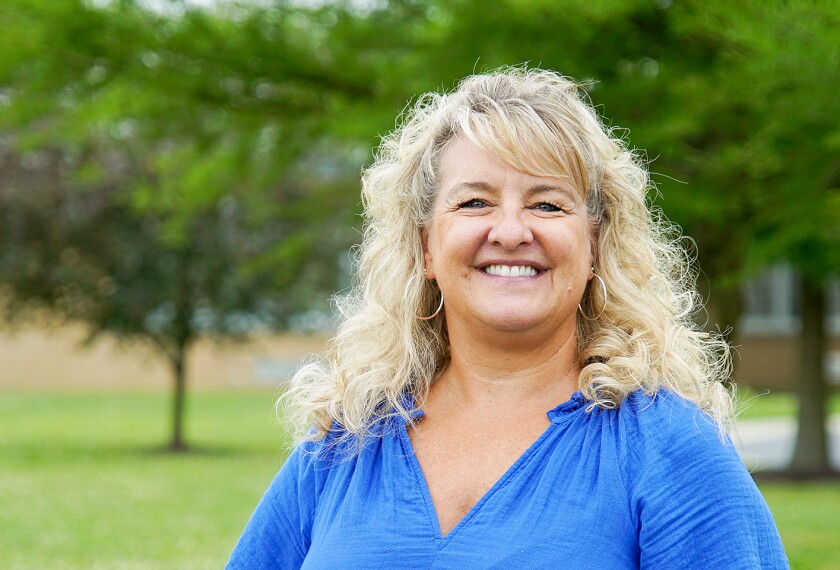Includes updates and/or revisions.
As educators across the country focus attention on designing new and better ways to gauge what students are learning, they risk distorting the meaning and practice of formative assessment and squandering its potential to enhance teaching and learning, an assessment expert is warning.
Margaret Heritage, the assistant director for professional development at the National Center for Research on Evaluation, Standards and Student Testing, or CRESST, at the University of California, Los Angeles, appeared on a panel here last week to discuss a new paper intended as a reminder of what formative assessment should be.
Her comments were aimed directly at two groups of states that are working to design assessment systems for new common standards that have been adopted so far by 41 states. Since the new tests stand to exert a potent influence in classrooms across the country, the type of tests they produce—and the way they purport to gauge student knowledge—are the subject of keen attention.
Ms. Heritage argued that the two consortia lack “the right mind-set” because they depict formative assessment as sets of tools, or “mini-summative” tests.
Referring to a body of work that sought to define formative assessment during the past two decades, including the influential 1998 article, “Inside the Black Box,” by Paul Black and Dylan Wiliam, she said formative assessment is not a series of quizzes or a “more frequent, finer-grained” interim assessment, but a continuous process embedded in adults’ teaching and students’ learning.
Teachers use formative assessment to guide instruction when they clearly define what students should know, periodically gauge their understanding, and give them descriptive feedback—not simply a test score or a grade—to help them reach those goals, Ms. Heritage said. Students engage in the process by understanding how their work must evolve and developing self-assessment and peer-assessment strategies to help them get there, she said.
Ms. Heritage’s comments echo others’ concerns that the meaning of formative assessment has been hijacked as the standards movement has pressed states into large-scale testing systems. The result, Ms. Heritage said, is a “paradigm of measurement” instead of one of learning.
While summative tests can provide valuable information for decisions about programs or curriculum, she said, the most valuable assessment for instruction is the continuous, deeply engaged feedback loop of formative assessment. Channeling money into building teachers’ skills in that technique is a better investment in student achievement, she said, than paying for more test design.
Technique Misunderstood?
Michael Cohen, the president of Achieve, a Washington-based group that is the project manager for the Partnership for the Assessment of Readiness for College and Careers consortium, said his organization’s primary aim is to design a better summative assessment, and is not creating formative assessments as part of that package. By clearly defining performance standards, however, his group’s summative tests can “provide a context” for good formative-assessment practice, Mr. Cohen said during the panel discussion.
The executive director of the other consortium, called SMARTER Balanced, said his group envisions formative assessments not as a tool, but as a “way of doing business, a way of interacting with students,” so it is designing a set of resources for teachers to use in that instructional feedback loop.
“If that point wasn’t made clear in our proposal, that’s an unfortunate misunderstanding,” Joe Willhoft said in a phone interview. “One of the three legs of our plan is exactly that: professional development,” along with interim assessments and adaptive summative tests.
Other members of the panel, organized by the Council of Chief State School Officers, which is supporting states as they design new assessments, urged better training of preservice and in-service teachers in using formative assessment. Many teachers think they are using the technique, but they fundamentally misunderstand it, said Stuart Kahl, the co-founder of Measured Progress, a Dover, N.H.-based assessment designer.
“There are teachers who say, ‘Oh, I do formative; I quiz them every day,’” he joked.
Sarah McManus, the chief of testing and policy operations for the North Carolina education department, said her agency is helping teachers learn formative assessment by posting modules online. But states must devote resources to thorough, ongoing professional development to build the skills in their teachers, she said.
Mastering formative assessment carries profound implications for changing teaching from a top-down process to a more collaborative one, said Caroline Wylie, a research scientist with the Princeton, N.J.-based Educational Testing Service who also appeared on the panel.
“This is not a follow-the-pacing-guide sort of teaching,” Ms. Wylie said.
A teacher quoted at the end of Ms. Heritage’s paper captures the essence of the paradigm shift Ms. Heritage has in mind.
“I used to do a lot of explaining, but now I do a lot of questioning,” said the teacher. “I used to do a lot of talking, but now I do a lot of listening. I used to think about teaching the curriculum, but now I think about teaching the student.”





